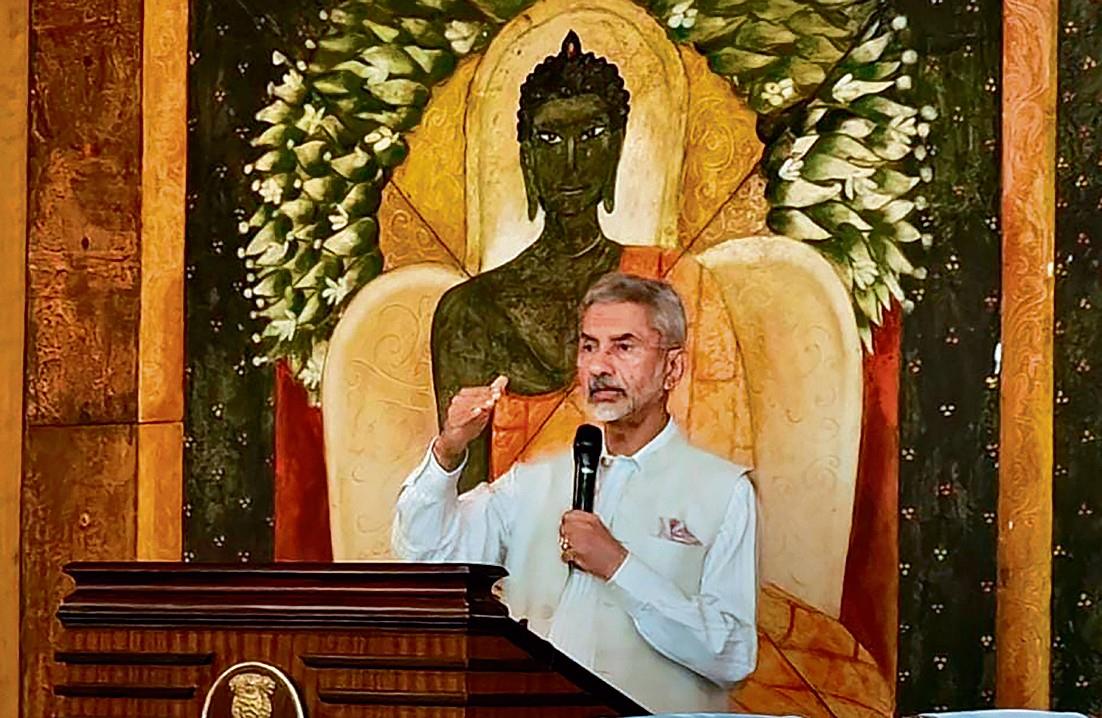
New Delhi, August 7
External Affairs Minister S Jaishankar today expressed guarded optimism about resolving the border dispute with China but was resolute on the need to keep on improving the infrastructure on the northern borders.
Full solution with china yet to emerge
There were five-six areas that were very tense. There has been progress (there). Full solution has not emerged but talks are underway.
S Jaishankar, EAM
“There were five-six areas, including Pangong Tso, Galwan and Hot Springs, that were very tense. There has been progress (there). Full solution has not emerged but talks are underway. In diplomacy, it takes time, this is a complex issue,” the minister told newspersons as part of the government’s ministerial outreach programme.
“How much distance one has to go…to which side…it will be done according to the principle of mutual disengagement to take it forward,” he added.
The minister said there had been “good progress” and “talks are going on”. At the same time, he expressed the government’s intention to keep improving the border infrastructure in order to go head-to-head with opposing forces if the need arose.
Blaming the opposition Congress for neglecting the building of roads in border areas, he said: “It’s not the quality of how loudly you speak and what language you speak. It is what you have done on the ground. A government, a political party that is serious will actually deliver on border infrastructure.
Those who neglect border infrastructure cannot then claim they are serious.”
“The overall mobility of both the armed forces and the civilian population in the border areas has increased tremendously in the last few years because of the government’s focus on the rapid enhancement of infrastructure in the frontier areas. The capability is growing year after year,” he said.
Jaishankar said India could deploy its troops quickly in 2020 following the border row in eastern Ladakh because of the construction of roads, bridges and tunnels. “If the same thing had happened in 2014, we would have been at a huge disadvantage. They developed infrastructure and we did not match it,” he said.
The second major security challenge was on the Myanmar border with the Manipur violence having disrupted work on the trilateral highway from India to Thailand. The Arakan\ohingya civil disturbances have already affected India’s second major project in the North-east – operationalisation of Sittwe Port. “The operationalisation of Sittwe is a concern…..the trilateral highway (India-Myanmar-Thailand) is facing a big challenge today due to the law and order situation,” he said. The minister also went over recent initiatives, including plans to link Bhutan with rail connectivity, have petroleum pipeline and land bridge with Sri Lanka and pipeline and rail links with Nepal.
